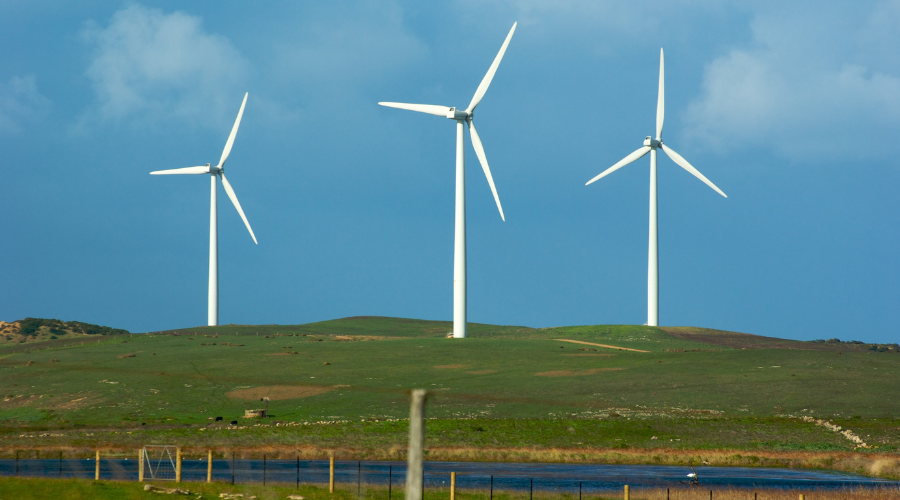
Renewable energy and the impacts on nature
Australia’s renewable energy transition must minimise negative impacts on nature and cultural values.
Frequent floods, severe bushfires, and more international climate and biodiversity agreements put in place. It's obvious that a full transition away from fossil fuels is necessary and urgent.
To address the impacts of climate change on people and nature Australia needs to expand renewable energy projects. This includes: solar and wind farms onshore or offshore, mining for rare metals, and transmission lines that are up to scratch. Where and how this happens presents a dilemma. (Main image above by tioloco)
These renewable energy projects could have negative impacts on natural and cultural values. In some places, they already are. Forest, desert, river and ocean ecosystems are at risk from renewables mining and infrastructure.
Decades of decision-maker denial and delay on climate—here in Australia and globally—mean that the necessary rapid transition to renewable energy risks further damage to natural and cultural values. As one of the globe’s most biodiverse continents, with the oldest living culture on Earth, Australia has both much to gain and lose in this transition.
How Australia does renewables matters—for climate, for nature, and for people.

The situation is urgent, yet this doesn’t mean renewables should be exempt from national environment laws. The risks of more regrettable losses to significant natural values are too great. Destroying more nature won’t mitigate the impacts of climate change, nor support people and nature to adapt to its impacts.
This dilemma needs to be considered to reduce those impacts as far as possible.
The mistakes humanity made in destroying nature through the industrial revolution must not be repeated through the renewables revolution.
Renewables developments must minimise negative impacts on natural and cultural values.
For example, developments should occur on previously developed or degraded lands and minimise impacts on ecosystems and water flows. Without consent from relevant First Nations peoples projects should not proceed. And the support of local communities for renewables developments is vital. A national plan is required, led by the federal government to make sure nature is not unnecessarily sacrificed for renewable energy goals.
The Wilderness Society recommends that governments and the renewable energy industry commit to absolute best practice, including:
No project is advanced in the absence of current free, prior and informed consent from relevant First Nations peoples;
Traditional ecological knowledge is appropriately integrated in planning, assessment, implementation and management of any relevant natural and cultural heritage;
The local community’s social licence to operate is genuinely sought and obtained by proponents;
Renewables projects and infrastructures are sited on land and sea which has previously been developed or degraded, and greenfields sites are avoided; and
Ensuring the least impact on natural surface and groundwater flows, for the cleaning and maintenance of large scale renewable energy assets.
The Commonwealth Government should lead development of a continent-wide plan, to enable the renewables industry to avoid impacts on World Heritage Areas and places of outstanding universal value, including critical habitat for species facing extinction. The Commonwealth must also ensure the sector is subject to new nature laws (in line with the planned EPBC Act reforms).
Statement as of 9 January 2023